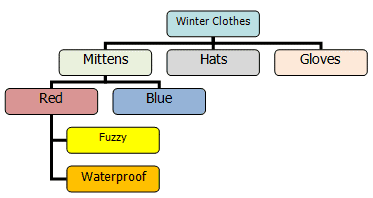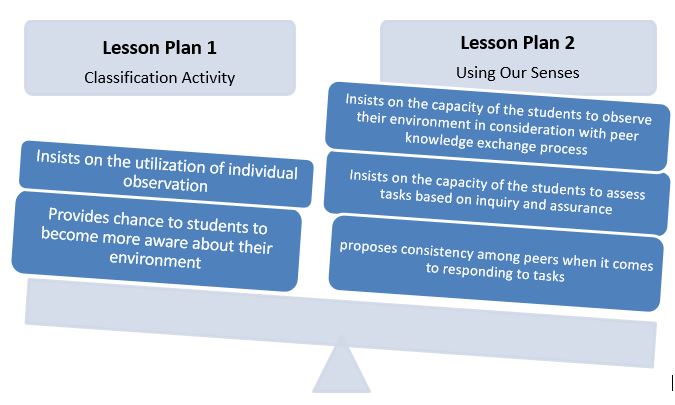 All papers examples
All papers examples
Disciplines

- MLA
- APA
- Master's
- Undergraduate
- High School
- PhD
- Harvard
- Biology
- Art
- Drama
- Movies
- Theatre
- Painting
- Music
- Architecture
- Dance
- Design
- History
- American History
- Asian History
- Literature
- Antique Literature
- American Literature
- Asian Literature
- Classic English Literature
- World Literature
- Creative Writing
- English
- Linguistics
- Law
- Criminal Justice
- Legal Issues
- Ethics
- Philosophy
- Religion
- Theology
- Anthropology
- Archaeology
- Economics
- Tourism
- Political Science
- World Affairs
- Psychology
- Sociology
- African-American Studies
- East European Studies
- Latin-American Studies
- Native-American Studies
- West European Studies
- Family and Consumer Science
- Social Issues
- Women and Gender Studies
- Social Work
- Natural Sciences
- Anatomy
- Zoology
- Ecology
- Chemistry
- Pharmacology
- Earth science
- Geography
- Geology
- Astronomy
- Physics
- Agriculture
- Agricultural Studies
- Computer Science
- Internet
- IT Management
- Web Design
- Mathematics
- Business
- Accounting
- Finance
- Investments
- Logistics
- Trade
- Management
- Marketing
- Engineering and Technology
- Engineering
- Technology
- Aeronautics
- Aviation
- Medicine and Health
- Alternative Medicine
- Healthcare
- Nursing
- Nutrition
- Communications and Media
- Advertising
- Communication Strategies
- Journalism
- Public Relations
- Education
- Educational Theories
- Pedagogy
- Teacher's Career
- Statistics
- Chicago/Turabian
- Nature
- Company Analysis
- Sport
- Paintings
- E-commerce
- Holocaust
- Education Theories
- Fashion
- Shakespeare
- Canadian Studies
- Science
- Food Safety
- Relation of Global Warming and Extreme Weather Condition
Paper Types

- Movie Review
- Essay
- Admission Essay
- Annotated Bibliography
- Application Essay
- Article Critique
- Article Review
- Article Writing
- Assessment
- Book Review
- Business Plan
- Business Proposal
- Capstone Project
- Case Study
- Coursework
- Cover Letter
- Creative Essay
- Dissertation
- Dissertation - Abstract
- Dissertation - Conclusion
- Dissertation - Discussion
- Dissertation - Hypothesis
- Dissertation - Introduction
- Dissertation - Literature
- Dissertation - Methodology
- Dissertation - Results
- GCSE Coursework
- Grant Proposal
- Admission Essay
- Annotated Bibliography
- Application Essay
- Article
- Article Critique
- Article Review
- Article Writing
- Assessment
- Book Review
- Business Plan
- Business Proposal
- Capstone Project
- Case Study
- Coursework
- Cover Letter
- Creative Essay
- Dissertation
- Dissertation - Abstract
- Dissertation - Conclusion
- Dissertation - Discussion
- Dissertation - Hypothesis
- Dissertation - Introduction
- Dissertation - Literature
- Dissertation - Methodology
- Dissertation - Results
- Essay
- GCSE Coursework
- Grant Proposal
- Interview
- Lab Report
- Literature Review
- Marketing Plan
- Math Problem
- Movie Analysis
- Movie Review
- Multiple Choice Quiz
- Online Quiz
- Outline
- Personal Statement
- Poem
- Power Point Presentation
- Power Point Presentation With Speaker Notes
- Questionnaire
- Quiz
- Reaction Paper
- Research Paper
- Research Proposal
- Resume
- Speech
- Statistics problem
- SWOT analysis
- Term Paper
- Thesis Paper
- Accounting
- Advertising
- Aeronautics
- African-American Studies
- Agricultural Studies
- Agriculture
- Alternative Medicine
- American History
- American Literature
- Anatomy
- Anthropology
- Antique Literature
- APA
- Archaeology
- Architecture
- Art
- Asian History
- Asian Literature
- Astronomy
- Aviation
- Biology
- Business
- Canadian Studies
- Chemistry
- Chicago/Turabian
- Classic English Literature
- Communication Strategies
- Communications and Media
- Company Analysis
- Computer Science
- Creative Writing
- Criminal Justice
- Dance
- Design
- Drama
- E-commerce
- Earth science
- East European Studies
- Ecology
- Economics
- Education
- Education Theories
- Educational Theories
- Engineering
- Engineering and Technology
- English
- Ethics
- Family and Consumer Science
- Fashion
- Finance
- Food Safety
- Geography
- Geology
- Harvard
- Healthcare
- High School
- History
- Holocaust
- Internet
- Investments
- IT Management
- Journalism
- Latin-American Studies
- Law
- Legal Issues
- Linguistics
- Literature
- Logistics
- Management
- Marketing
- Master's
- Mathematics
- Medicine and Health
- MLA
- Movies
- Music
- Native-American Studies
- Natural Sciences
- Nature
- Nursing
- Nutrition
- Painting
- Paintings
- Pedagogy
- Pharmacology
- PhD
- Philosophy
- Physics
- Political Science
- Psychology
- Public Relations
- Relation of Global Warming and Extreme Weather Condition
- Religion
- Science
- Shakespeare
- Social Issues
- Social Work
- Sociology
- Sport
- Statistics
- Teacher's Career
- Technology
- Theatre
- Theology
- Tourism
- Trade
- Undergraduate
- Web Design
- West European Studies
- Women and Gender Studies
- World Affairs
- World Literature
- Zoology
Lesson Plan Comparison and Contrast Project, Essay Example
Hire a Writer for Custom Essay
Use 10% Off Discount: "custom10" in 1 Click 👇
You are free to use it as an inspiration or a source for your own work.

Lesson Plan Comparison and Contrast Project
Introduction
Research shows that when early childhood professionals have specialized training and education, children benefit, as the educators are expected to know and define essential learning plans, their initiation, their planning, and their outcome based on an individual basis of students, as stated by the NAEYC (2010) report in 2011. NAEYC continues to use the child development research and evidence base to define the early childhood period as spanning the years from birth to age 8, NAEYC (2010). The statement clarifies that NAEYC’s standards portrays definite core values that cannot be easily quantified, i.e. play in children’s lives, relationship with families (NAEYC, 2010).
The project will show the comparison between the Module 3 lessons and the two observed science lessons mentioned in this project. Observing these NAEYC (2010) standards, there are two lesson plans initiated and explored in this project, which extensively covers the three important constituents of a well-designed academic metaphor.
Lesson Plan 1
‘Classification activity” is a science lesson plan for KG-2 students as mentioned in the Teachnology Inc (2012). This allows the students define their classification skills through utilizing their senses and their keen capability to observe matters around them.
Objective
The students will be able to create imperative descriptions utilizing at least three words they find specifically important in each item that they are presented with. They will also acquire a thorough understanding of the classification concept as well as the category of items they are given.
Review Activity
Show some visual graphics to the children of the winter time, like snow pictures, people wearing warm clothes, etc. and ask them to describe what they think, observe how they respond to the teacher.
Materials
- Mittens, gloves, hats and other accessories used for winter time
- Charting card
- Drawing Paper
- Markers and crayons
- Solid objects for sorting
Activity 1
Passing the items to the students, the teacher shall ask them to identify each and note where and when they are used hence allowing them to use their memory and relative rational thinking in considering how each object is related to their personal course of living. Asking them to identify each item based on the classifications they get from their observation would allow them to see how each item is related to their memory and is in parallel with their specific needs during a particular season or a particular event in their daily activities.
The students will also be asked to identify each object as to where they use it, when they use it and how each of them looks and feels like. The charting system shall allow the students identify each item based on physical characteristics. Laying the descriptions out in a chart-form will make it easier for the students to see which characteristics are most distinct that could identify the items they are observing.
Image Source

Teachnology (2012). Introduction to Classifying.
After all the items have been sorted, brainstorm other things that can be classified as
Lesson Plan 2
“Using our senses”, is a science lesson plan as well for KG-2 students as mentioned in the Teachnology Inc (2012).
Overview and Purpose
For this lesson, students will have to utilize their senses and their inquisitive capacity to inquire with their peers in consideration with the need to identify the items in the boxes provided by the teacher. Writing their observations and guesses in a worksheet shall allow them to understand the specific procedures of scientific methods.
Objective
The children will have the chance to identify elements in the box using their sense of small and touch and provide descriptive words that would help their listeners know about what they have discovered.
Materials
- worksheet
- oranges
- crayons
- Banana
- clay
- 4 cardboard boxes labeled 1-4 with two holes just big enough for student’s hands cut out opposite the opening
Activity 2
There would be set-up boxes that would have holes in them for the students to insert their hands into and identify the objects inside.
The objects [crayons, orange, clay, and banana] are to be placed in each box which the students are supposed to identify without looking at them.
The children shall be asked to write in observations and descriptions in the worksheets provided.
After all procedures have been undertaken, the students are to be asked to group together and identify the elements altogether and provide comments of inquiry between each other hence making it easier for each of them to know what the others observed that they may have not.
Teachnology Inc. (2012)
Worksheet Template

Tool Source: Teachnology Inc. (2012). Using our senses. Retrieved from: http://www.teach-nology.com/teachers/lesson_plans/science/k2usingsense.html
Venn diagram for Comparison and Contrast in Lesson Plans

References
Teachnology Inc. (2012). Lesson Plan Title: Introduction to Classifying. Retrieved from http://www.teach-nology.com/teachers/lesson_plans/science/k2classify.html. (Retrieved on April 30, 2012)
Teachnology Inc. (2012). Lesson Plan Title: Using our senses. Retrieved from: http://www.teach-nology.com/teachers/lesson_plans/science/k2usingsense.html. (Retrieved on April 30, 2012)
NAEYC (2010). 2010 NAEYC Standards for Initial & Advanced Early Child hood Professional Preparation Programs. Retrieved from: http://www.naeyc.org/files/ncate/file/NAEYC%20Initial%20and%20Advanced%20Standards%203_2011.pdf. (Retrieved on April 30, 2012)
Carnegie Mellon. (2012). Teaching Principles. http://www.cmu.edu/teaching/principles/teaching.html. (Retrieved on April 30, 2012)

Stuck with your Essay?
Get in touch with one of our experts for instant help!

Time is precious
don’t waste it!
writing help!


Plagiarism-free
guarantee

Privacy
guarantee

Secure
checkout

Money back
guarantee

